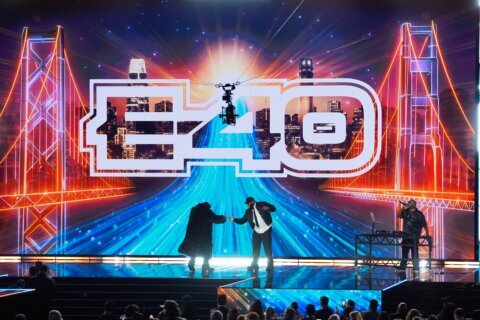You’ll never find more beautiful moviestars than Warren Beatty and Faye Dunaway as the iconic outlaws in Arthur Penn’s Hollywood Renaissance masterpiece “Bonnie & Clyde” (1967).
In that cultural touchstone, the anti-heroes were painted as beloved bank robbers rebelling against Depression-era bankers that collapsed countless American lives into economic ruin.
Now, they’re presented as coldblooded killers on the elusive peripheral of Netflix’s film “The Highwaymen,” a patient police procedural that plays like the flip-side to the 1967 classic.
The story follows two former members of the disbanded Texas Rangers who come out of retirement to track Bonnie Parker and Clyde Barrow after their Midwest killing spree in 1934. Texas Governor “Ma” Ferguson (Kathy Bates) hires legendary rifleman Frank Hamer (Kevin Costner) and his ex-partner Maney Gault (Woody Harrelson) to track the outlaws across Texas, Oklahoma, Kansas and ultimately to their bullet-riddled demise in rural Louisiana.
Both leads are believable as aging lawmen after Costner’s Elliot Ness caught Al Capone in “The Untouchables” (1987) and Harrleson’s Carson Wells tracked Anton Chigurh in “No Country for Old Men” (2007). Harrelson exudes gun-shy world-weariness, while Costner adopts a gruff voice with gravel in his gut and spit in his eye influenced by his country band Modern West.
They’re surrounded by a stellar supporting cast, including Kathy Bates (“Misery”) in a far-too-small role as the skeptical governor ready to take credit after the fact; John Caroll Lynch (“Fargo”) as Department of Corrections chief Lee Simmons; and a show-stealing William Sadler (“The Shawshank Redemption”) as Clyde’s heartbroken blue-collar father Henry Barrow.
Ironically, when it comes to Bonnie & Clyde (Emily Brobst & Edward Bossert), the elusive outlaws are intentionally left on the peripheral. Director John Lee Hancock (“The Blind Side”) smartly never shows the killers’ faces until the climax, creating an effective air of mystery for the antagonists until a powerful human glimpse just before a hail of bullets rips their Ford V8.
With less focus on the getaway car, screenwriter John Fusco (“Young Guns,” “Hidalgo”) also scraps the roles of Buck and Blanche that launched Gene Hackman’s career and bagged Estelle Parsons an Oscar. That’s because he starts the script after the police raid on Dexfield Park that wounded Buck and cuffed Blanche, instead picking up the chronology later with the Eastham Prison Break. Fusco also stays closer to the truth at the conclusion, having Henry Methvin’s father sell out the duo rather than the creative license of C.W. Moss’ father.
Not only are the timelines different, the overall tone is much more somber. Don’t expect high-speed chases set to the banjos of Flatt & Scruggs. This is a slowburn police procedural filled with shadowy cinematography by John Schwartzman (“Seabiscuit”), transparent edits by Robert Frazen (“Enough Said”) and a brooding score by Thomas Newman (“The Green Mile”).
While this deliberate pacing might drag for short attention spans, fans of character-driven dialogue will delight in the well-written exchanges between Hamer and Gault over evolving lawman ethics (i.e. “No Country for Old Men”) and the curse of taking a life (i.e. “Unforgiven”). When a gas station attendant insists Bonnie & Clyde are Robin Hoods robbing the rich to give to the poor, Hamer pushes back, citing the many innocent police officers killed along the way.
The most powerful scene comes when Hamer confronts Clyde’s father to discuss the nature of criminality. Clyde’s father insists his boy wasn’t born a bad kid. “All he did was steal a chicken.” Hamer replies, “Don’t you think there was something inside him that caused him to steal that chicken?” Coming to an understanding, the father asks Hamer to mercifully end it.
When the inevitable end arrives, swooning fans snatch souvenirs off their lifeless bodies like vultures before thousands pack their funerals. It’s the culmination of a damning commentary on the press turning killers into cult heroes. Today, it’s 24-hour TV stations plastering criminal faces on screens more than the victims. In “The Highwaymen,” it’s sensational newspaper headlines from Bonnie’s legendary poem to Clyde’s thank-you note to Henry Ford’s “fine car.”
It’s unfair to hold such a modest effort to the high standard of the 1967 masterpiece. It’s impossible to rival Penn’s avant-garde mastery, using matchsticks, bottles and “O” rings for sexual symbolism, downward pistols to suggest Clyde’s impotence and a bloody ballet of slow-motion bodies convulsing in gunfire. Still, it’s a fine companion piece that’s the type of old-fashioned, midrange, character-driven story that we don’t get often enough these days.









